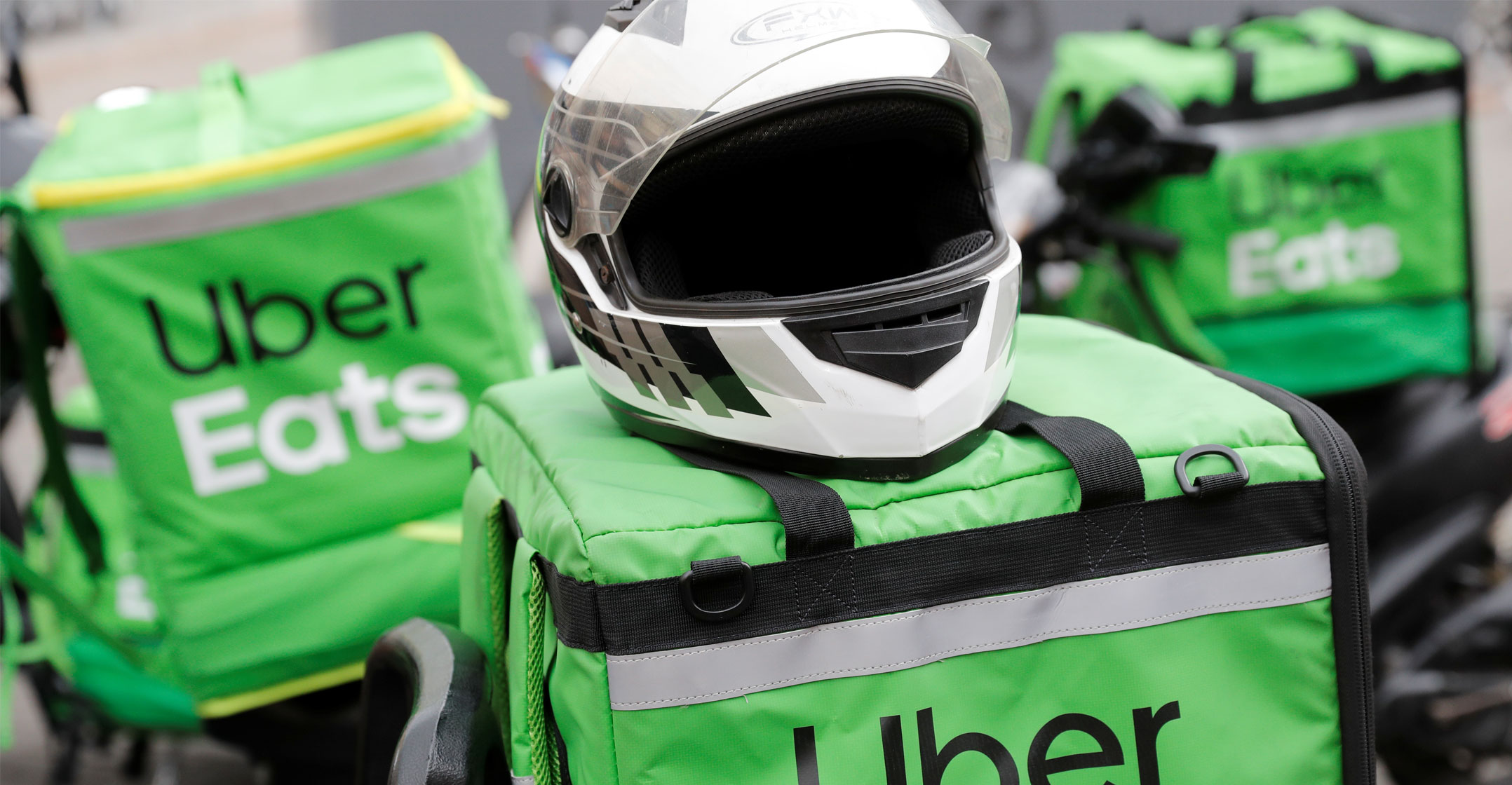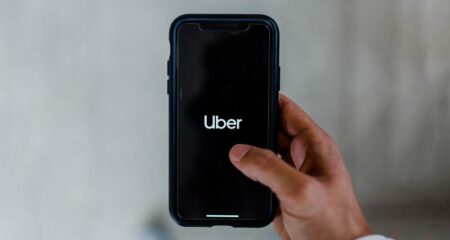
Uber South Africa pledged to increase safety campaigns for food delivery drivers and review the insurance they provide following a recent exposé about the mounting risks faced by drivers during the Covid-19 pandemic.
The Thomson Reuters Foundation exposé, published earlier this month, found a lack of training and safety equipment as rising numbers of mainly migrant drivers take to the roads to earn a living, and poorly advertised and often insufficient insurance cover.
Figures obtained by the Thomson Reuters Foundation showed a 30% jump in road accidents involving food couriers in May and June last year as South Africa eased its lockdown and the numbers of drivers rose.
“As a business, we prioritise the safety of everyone who uses our app and we work hard everyday to be the best we can be, but there is always room for improvement,” said Samantha Fuller, spokeswoman for Uber in sub-Saharan Africa.
“We will be running more education campaigns in May and June… We will be looking at the engagement channels we use for this and how we can better make sure key information gets to our delivery partners,” she said in e-mailed comments.
Increased frequency
Although these campaigns were already planned, Uber confirmed that they will be increasing the frequency to ensure more drivers know of the safety offerings available to them, such as emergency assistance and injury protection.
Of 27 delivery drivers interviewed for this article — all of whom were migrants and involved in accidents — only five knew of any insurance scheme by gig platforms, including one who got compensation for lost income.
This compensation was from local grocery delivery company, Checkers Sixty60, but the driver in question said the amount of R5 200 was not enough to cover his medical costs.
 Drivers and analysts fear the number of logged accidents was just the tip of the iceberg as many drivers avoid reporting incidents due to their undocumented status in South Africa and concern of losing jobs.
Drivers and analysts fear the number of logged accidents was just the tip of the iceberg as many drivers avoid reporting incidents due to their undocumented status in South Africa and concern of losing jobs.
Lawyers and rights groups said insurance policies did not do enough to protect drivers, capping medical coverage to 180 days, and requiring drivers to spend 48 hours in hospital before qualifying for lost wages.
One driver reported feeling “abandoned” after he was hit by a car, broke his toe and could not work, or walk, for one month after the accident. Uber told him he did not qualify for compensation as he was in hospital for less than 48 hours.
Uber confirmed that the company was reviewing the time it takes for insurance to kick in for drivers following the story.
“We hope this is not just talk but also action,” said Duane Bernard, the head of a national, informal Uber Eats union. “It would be great if Uber could also get people on the ground and talk to the drivers face to face,” added Bernard, saying that this would help overcome language barriers rather than “just sending out an e-mail now and then”.
Migrants
About 70% of drivers are migrants, according to the Motorcycle Safety Institute, a local training and research organisation, while Bernard puts the number at 95%.
Two other food delivery companies, Checkers Sixty60 and Mr D Food, also mentioned in the story, did not respond to questions about improving drivers’ safety.
“We’re committed to doing the right thing and take on our part of the responsibility to better safety in the industry,” said Fuller. — Reported by Kim Harrisberg, (c) 2021 Thomson Reuters Foundation




